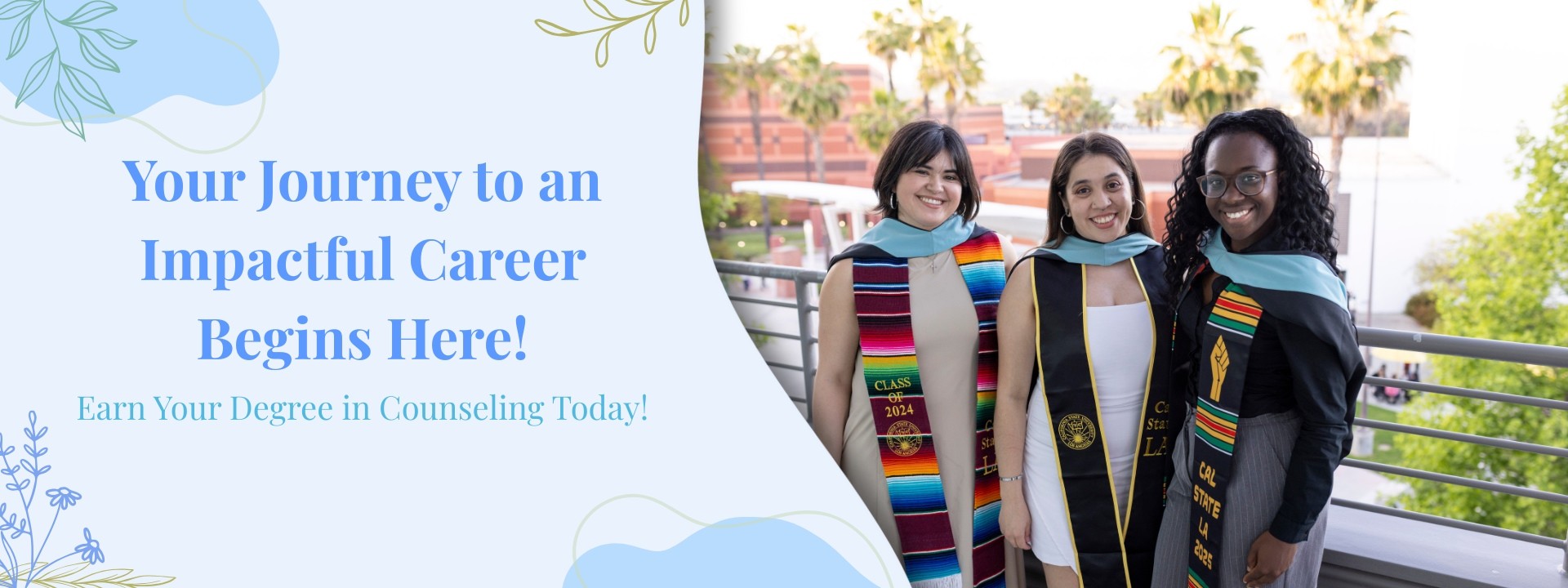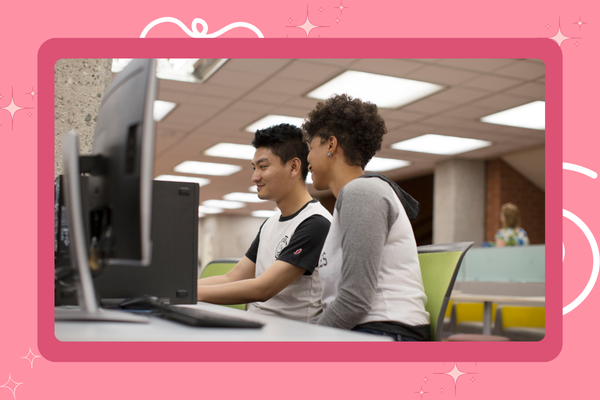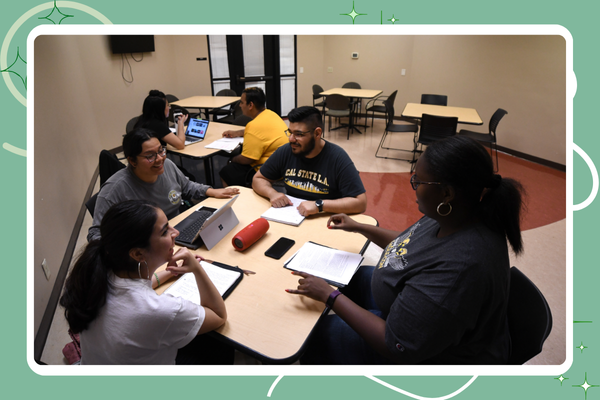Are you ready to launch an impactful career supporting students and families in both school and mental health settings?
The School Based Family Counseling Program is designed to prepare students with the clinical skills of an independent marriage and family therapist and the wide range of competencies of an effective school counselor. Students learn to work with adults, families and children from a variety of systems-oriented perspectives in a variety of environments. The SBFC option recognizes that the two most important sources of influence in a child’s life are the family and the school. When a child is having behavioral or academic difficulties in school, efforts are focused on strategies to develop a collaborative effort between the family and school to maximize the academic and social success of the child. School-Based Family Counselors view the challenge of increasing parental involvement in their child’s educational process as essential in efforts to assist the child to become successful in school and in the community.
With a strong foundation in clinical practice and community engagement, students are equipped to pursue multiple professional credentials—including the Pupil Personnel Services (PPS) credential, Advanced Authorization in Child Welfare and Attendance (CWA), Licensed Marriage and Family Therapist (LMFT) license, and Licensed Professional Clinical Counselor (LPCC) license. Graduates are prepared to serve in a variety of school and mental health settings where they can make a lasting impact.
Explore Available Credentials
A career in school-based family counseling is both impactful and versatile, blending mental health and educational support to serve students and families in diverse communities. This program provides the comprehensive training needed to pursue California credentials such as PPS, CWA, LMFT, and LPCC—preparing graduates for meaningful work in schools and mental health agencies alike.
Learn about the Admission Process
If you're ready to make a difference in the lives of students and families, we’re here to help you get started. Whether you're advancing your current career or entering the field for the first time, our program is here to guide you. Explore the steps to apply and take the first step toward a meaningful future in counseling.
Build a Strong Foundation for a Lifelong Impact

The School-Based Family Counseling Program equips you with the skills and insight necessary to make a meaningful, lifelong impact on the lives of students and families. This includes:
- The clinical skills of an independent marriage/ family therapist and a wide range of competencies of an effective school counselor.
- The ability to work with adults, families, and children from a variety of systems-oriented perspectives and environments.
- The strategies to develop a collaborative effort between the family and school to maximize the academic and social success of the child.
- The challenges of increasing parental involvement in their child’s educational process to assist the child to become successful in school and in the community.
Applications for Fall 2026 will open on October 1st, 2025
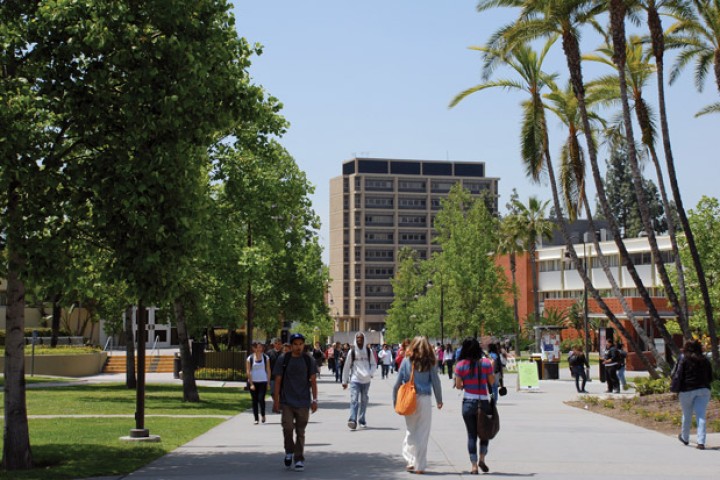
Start Your Journey Today
Are you ready to take the next step toward a rewarding career in counseling? Don’t wait—start your application today and be part of a program that transforms lives!
Qualify for Credentials

Thank you for your interest in Cal State LA’s graduate program in School-Based Family Counseling, a fully integrated Marriage and Family Therapy and School Counseling program. This combination program leads to earning the Master of Science in Counseling: School-Based Family Counseling (MFT+PPS/CWA) Option, with an emphasis on clinical training in multicultural conjoint family therapy and social justice that also includes the PPS in School Counseling and the Advanced Authorization in Child Welfare and Attendance. The program provides the opportunity to satisfy all the academic requirements for the California MFT license, LPCC license, PPS and CWA credentials, and qualifies our graduates for employment in mental health agencies and in schools.
All students must complete the MS in Counseling along with the PPS and CWA.
There is no MFT Only option.
Upon completing the master's degree in this program, students not only gain a deep understanding of School-Based Family Counseling Program but also qualify for valuable credentials, including:
Pupil Personnel Services Credential
The Pupil Personnel Services (PPS) Credential authorizes any of the following specializations: school counseling, school social work, school psychology, and the additional authorization of child welfare and attendance services.
Pursuing the specialization in School Counseling includes developing comprehensive counseling and guidance programs encompassing academic, career, personal, and social development. It involves advocating for student’ academic success, providing school-wide support, and offering consultation and training to educators and parents.
Advanced Authorization in Child Welfare and Attendance
An Advanced Specialization in Child Welfare and Attendance (CWA) Services is a specialized area within the Pupil Personnel Services (PPS) credential that focuses on supporting student well-being and success by addressing issues of attendance, student and family welfare, and truancy prevention and intervention.
This specialization equips students with the expertise to navigate the intricate landscape of child welfare and attendance services, allowing them to make a meaningful impact in this critical area.
Admissions
The School-Based Family Counseling Program welcomes applicants from a wide range of academic and professional backgrounds who are committed to making a positive impact in schools and communities. No specific undergraduate major is required, and no standardized tests (e.g., GRE) are needed to apply.
If you’re passionate about helping others and ready to begin a transformative journey in counseling, we encourage you to apply!
On the application, the SBFC program is listed under “Graduate Degree programs - Cal State Los Angeles” under “Counseling”- (School-Based Family Counseling - Marriage and Family Therapy and School Counseling)
In addition to meeting the University's general requirements for admission to graduate programs, prospective students must fulfill the following criteria:
A baccalaureate degree or higher from a regionally-accredited college or university.
A 2.75 grade point average in the last 60 semester units attempted.
Two letters of recommendations.
Participate in an interview with the Department screening committee.
Additional Admission Requirements Prerequisite Course - Please view Prerequisite and Transfer of Graduate Courses Tab
Please follow the instructions provided by Cal State LA Admissions and Recruitment regarding transcripts- Submitting Transcripts https://www.calstatela.edu/admissions/submitting-documents
Be sure to complete the application and upload ALL required documents, including personal statement, transcripts and letters of recommendations by January 15, 2026. Incomplete applications will NOT be reviewed.
Resume
A 2-page resume that outlines your college educational preparation, paid work experiences, and any volunteer experiences that help to highlight your future potential as a counselor.
Personal Statement
Please upload a personal statement essay that addresses the bullets below in no more than three pages. The personal statement in the application should be double-spaced, with 1-inch margins, in 12 pt. Times New Roman font.
Please incorporate specific examples where appropriate.
- Career goals, aspirations and inspirations
- Importance of this degree to achieving your goals
- Past experiences working with others, including strengths and areas for improvements
- Alignment of your personal philosophy of teaching, learning, counseling, or leadership with the Mission and Core Values of the College of Education at Cal State L.A. Please see these at: https://www.calstatela.edu/academic/ccoe/about.
Unofficial Transcript/s
Upload one unofficial transcript from the college/university where you earned your most recent degree (e.g., bachelor's, master's, doctorate) to the 'Unofficial Transcript' slot.
Up to five transcripts from other colleges/universities attended may be uploaded to the 'Additional Unofficial Transcript' slots.
Please note the following regarding uploading unofficial transcripts:
- Pages should be legible and facing the right way up (i.e., not rotated 90 degrees or more).
- One file per school. If the transcript has multiple pages, combine them into a single file and arrange the pages in sequential order
The SBFC program at Cal State LA currently accepts two cohorts of 12 students each, once a year for the Fall semester. Acceptance to the program is usually a very competitive process with over
300 applicants for 24 positions, so it is very important to get experience in the mental health field and to know what an MFT and School Counselor do in their work settings.
Historically, applicants with a grade point average of 3.0 or better and experience in the mental health field are selected for interviews, although this depends on the quality of the applicants for each year's cohorts. Those applicants selected receive a 20-minute individual interview with at least two faculty members. The purpose of the interview is to assess the applicant's knowledge and experience of the Marriage and Family Therapy and the School Counseling professions, and the ability to demonstrate the interpersonal skills and self-awareness necessary for these professions.
No specific undergraduate major is required nor is a standardized test (e.g., GRE) required.
There is only one prerequisite, which is a course in Counseling or Psychological Theories (This does not have to be completed before applying to the program, but it must be completed before beginning the program in the Fall).
If you graduated with a degree in Psychology, then you have satisfied this prerequisite.
COUN 4500-Counseling Theories is offered at Cal State LA in the 10-week Summer semester before the program begins if you have not taken a similar course beforehand.
A satisfactory course for the prerequisite in Counseling Theories (COUN 4500) must include specific coverage of the major theories of counseling or psychology (i.e., psychoanalytic, behavioral, gestalt, Rogerian, cognitive, etc.). An Abnormal Psychology course will not satisfy the prerequisite and an introductory course in psychology will likely not have enough coverage of theories. A Theories of Personality course may be appropriate. If you think you have taken a satisfactory course, then email Dr. Carter a syllabus from the course so that he can evaluate it for adequate coverage of the theories. You must have earned a “C” or better in the course. There are no other courses that can be taken before beginning the program.
Due to the highly structured nature of the courses and curriculum sequence, it is very difficult to transfer units from previous graduate degrees into the School-Based Family Counseling (MFT+PPS/CWA) graduate program at Cal State LA. Our program contains courses that integrate MFT competencies with school counseling competencies in the same courses (e.g., COUN 5160-Group counseling). In addition, our MFT program contains a unique clinical emphasis on multicultural family therapy that all of our students are required to be trained in.
Once accepted, there is a maximum of 18 semester units that can be transferred for graduate course credit from another institution. The transfer units are subject to advisor approval and University approval.
After reading all of this and the information on the links, if you still have questions about the program application itself, contact Vicki Kim at [email protected].
For other program related questions not already addressed here, please contact the program faculty listed below.
We wish you all the best in your journey towards becoming a mental health professional and we hope to see your application in January.
Take care,
Michael J. Carter, Ph.D.- SBFC Faculty
Emily J. Hernandez, Ed.D.- SBFC Faculty
Program Information Session
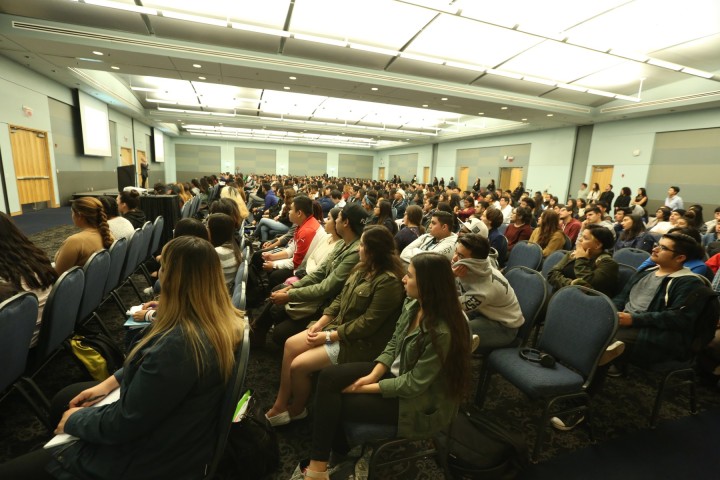
To view the 2025 informational session recording click here:
View Session
To view the slides from this informational session alone, click here:
View Slides
After Admittance
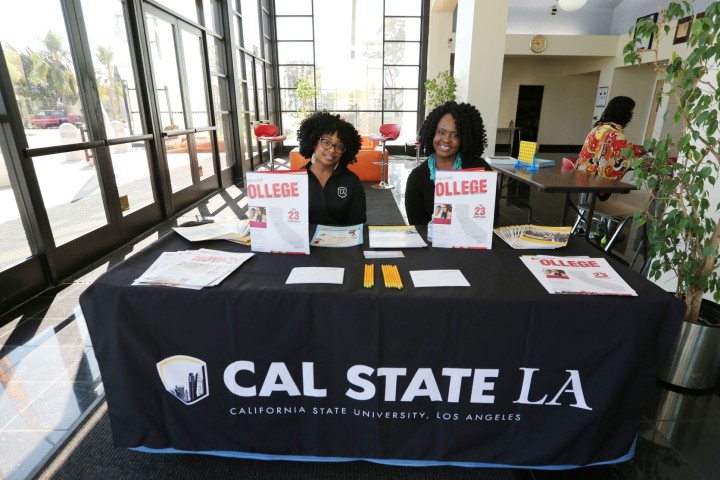
After admittance, students are assigned a faculty advisor and placed in a cohort group.
Candidates are required to obtain Certificates of Clearance with the California Commission on Teacher Credentialing (CTC), provide proof of a negative TB test, and successfully meet the Basic Skills Requirement (CBEST) to advance from conditional to full admission into the program.
The School-Based Family Counseing Program is a 3-year, full-time course of study consisting of 73 - 77 units. Part time study options are not available. Students should expect most classes to be completed in the evening hours and to be on campus 2-4 days/week.
Program Courses and Logistics
The SBFC program is an in-person, late afternoon, full-time graduate program that is highly structured and typically takes between 2 ½ to 3 years to complete, depending on the life circumstances of each student. In the first year, students typically take 5 classes that meet once per week each semester, with 2 classes on Monday nights, from 4:30 pm until 10 pm, one course on Wednesday night from 4:30-7:15pm and 2 additional courses taken either on Tuesday or Thursday from 4:30-10 pm, depending on which Clinic courses they are assigned.
These Clinic courses provide the opportunity for students to work in the Cal State LA’s School-Based Family Counseling Clinic with families from the community who are referred for family and school-related problems. Students work in co-therapy teams under the direct supervision of licensed faculty members. In the second year, students are eligible to begin their fieldwork courses in Marriage and Family Therapy and School Counseling while taking 4 courses each semester over 2-3 days in the same time slots as above.
Upon completion of their coursework, students must pass comprehensive exams or complete a thesis or project.
Due to COVID restrictions, interviews for admission for those who qualify will be held through Zoom during the last 2 Fridays and Saturdays of February 2026. For those applicants who are accepted, an orientation and group advisement meeting is held in April.
*We returned to in-class instruction for Fall 2023, per university directives.
This is subject to change and depends on safety and any changes in the COVID situation, but students need to be living in the Los Angeles area in order to start the program.
There is NO on-line option for this program
The total cost of the degree depends on when you are able to complete your fieldwork. Students are allowed to begin fieldwork during the second year and most finish it in the 3rd year. This would result in 4 semesters at the full-time rate (currently = $4200 per semester) = $16,800; PLUS 1 summer semester at the end of the first year with 2 classes through Open University (currently $990 per class) = $1980; Plus 2 semesters of 3-6 units of fieldwork in the third year (part time rate currently at $2800 per semester) = $5600 for a Total = $24,380. It is not known if there will be an increase in tuition over the next 3 years. For Financial Aid information, contact Cal State LA's Financial Aid Office.
The M.S. in Counseling, option in School-Based Family Counseling approved by the Board of Behavioral Sciences and accredited by the California Commission on Teacher Credentialing.
Contact Information
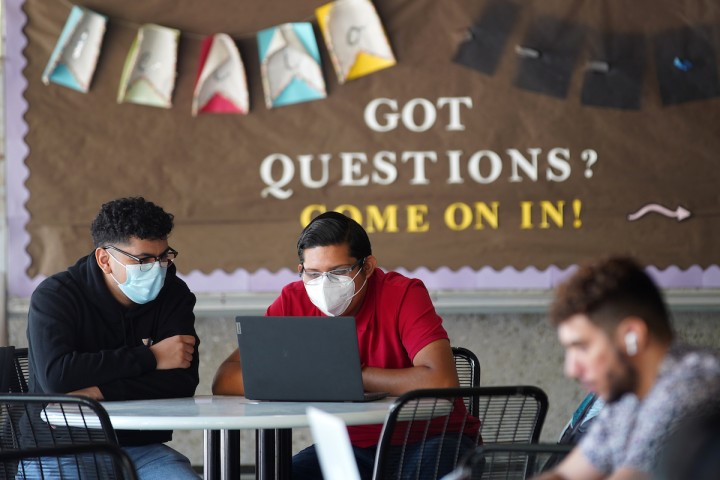
Department of Special Education and Counseling
Office Hours
Monday - Thursday: 8:00 AM - 6:00 PM
Friday: 8:00 AM - 5:00 PM
King Hall C1064
Phone: (323) 343-4400
Website: Department of Special Education and Counseling
Program Faculty
Michael J. Carter
Ph.D.- SBFC Faculty
Office Location: KH C-1067J
Phone: x34438
Email:
[email protected]
Emily J. Hernandez
Ed.D.- SBFC Faculty
Office Location: KH A2049
Phone: 323-343-4424
Email:
[email protected]
